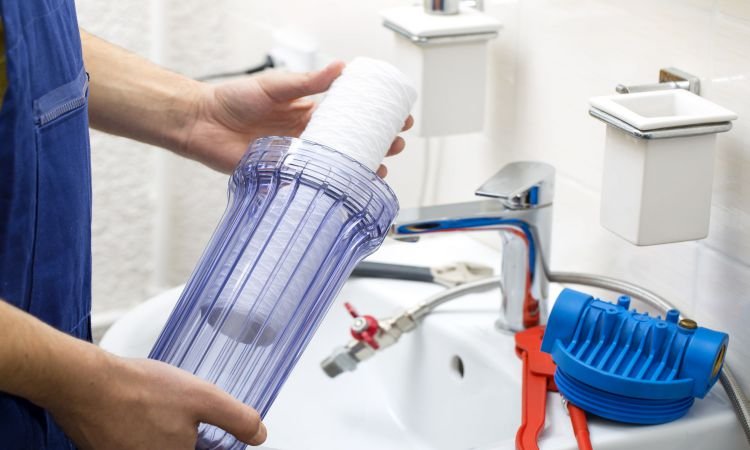 According to a 3-year old study, over 21 million Americans don’t have access to clean water. Why? With climate change issues, out-of-date infrastructures, and lack of action by states, there’s little support in fixing the water crisis.
According to a 3-year old study, over 21 million Americans don’t have access to clean water. Why? With climate change issues, out-of-date infrastructures, and lack of action by states, there’s little support in fixing the water crisis.
However, there is an option that allows you to have clean drinking water. You can install a water filter system.
It can be a challenging decision since there are various options to choose from. So to provide some assistance, we’ll give you insight on how to select the best water filter system for your home.
1. Decide on a Type of Filter
When choosing a water filter, you’ll first need to consider your home’s needs. There are two types of filters:
- Point of Entry (POE)
- Point of Use (POU)
Point of entry or whole-house filters connect to your water mainline and filter your home’s entire water supply. So whether you do laundry, shower, or wash dishes, the water will be treated.
Point of use water filters is designed for single filter use. You can attach them under your sinks or to your shower to filter that water. However, the entire water supply in your home will remain unfiltered.
2. Consider Different Filter Technologies
Another way to determine the best water filter system for your home is to think about how you want your water treated. There are various water filter treatment options available such as:
Activated Carbon
These systems come equipped with various natural carbon materials which attract impurities in the water. However, when choosing a water filter, you’ll need to check for its carbon efficiency.
Some filters will remove chlorine and bad smells from water, while others will remove volatile organic compounds (VOCs). So you’ll need to test your water supply before deciding on this filter.
Distillation
Distillation is when you boil water at a high temperature and collect the steam, leaving any contaminants behind. Most bacteria and viruses will get killed throughout the distillation process.
However, distillation may not always work on VOCs. Why? Some may have a higher boiling point than others and won’t remove all the contaminants. However, when paired with a carbon filter, you’ll get left with pure water.
Reverse Osmosis
Reverse osmosis filters push water through a porous surface, blocking out anything larger than a water molecule. They block out lead, bacteria, and viruses.
However, it won’t work on chlorine and VOCs. But like the distillation method, you can combine it with a carbon filter to give your home clean water.
3. Read Customer Reviews
If you’re having trouble deciding on a filter system, you should read customer reviews. You’ll gain valuable insight into certain products you’re interested in.
For example, Raine Water Systems has an average score of 4.5 out of 5 and plenty of good reviews. So you may want to check out their filtration system since the information comes from a reliable source.
Find the Best Water Filter System Using These Tips
No one should be without clean water. That’s why it’s essential to find the best water filter system for your home. You’ll remove harmful bacteria from your water supply and increase the safety of your home.
Hopefully, you’ve enjoyed our water filter guide. To learn more about filtration systems, check out our blog for related content.




